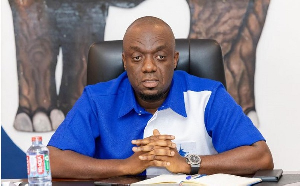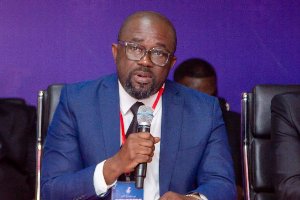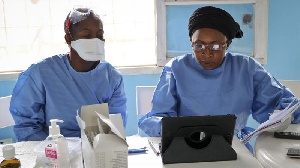By Ato Aidoo
It is now becoming obvious that the government of Ghana failed its entrance examination on the use power for accelerated development, how to sustain the rule of law, and curb corruption.
It has more work to do. Apart from its 100-day promise which hit a snag, failed promises and misuse of power are gaining currency, though some of these lapses do not have the government’s backing, but if not checked, they would gradually become an indelible feature in our body politic, while the people’s desire for a better life is suppressed by frustrated elements that support the government.
This government of Ghana has the semblance of a car dealership that operates at a loss. It defies reasoning that cars imported into the country by Ghanaians are seized under the pretext of having been stolen from Europe and North America, and are later sold at a lower price to people who sympathize with the government.
Not a surprise, it satisfies an example of how African governments disengage the citizenry from business. In their state of confusion, these governments forget that the professional thieves do not live in Africa. History teaches us, that people stole valuable resources from Africa, even the head of a King, not cars. If, indeed, Africans steal cars in so-called matured, civilized, lawful, and democratic environments, the collaborators are not Africans. Our governments have to understand this simple truth.
Obstructing genuine business, political witch-hunting, and this culture of lawlessness in Ghana cannot promote national cohesion. It cannot reduce tension in the country because people’s rights are being violated, constantly held back through a tortured bureaucracy, and government interference.
Paradoxically, the government is “playing” God. Recently, it organized a national prayer session, re- dedicating Ghana to the dictate of divine interventions. Definitely, the intent was right, but emerging manifestations make a mockery of that exercise. No country experiences real change when the message of the Bible runs contrary to societal views. The imbalance, undeniably, contributes to separation of righteousness and lawlessness.
Ghana cannot out-source its problems to God, while the country operates through dysfunctional systems. The word of God’s revelation is profoundly marked by the fundamental truth, that man created in the image of God, shares by his work in the activity of the Creator, that within the limits of his own capabilities, would continue to develop that activity, and perfects it as he advances deeper in the discovery of the resources and values contained in the whole creation.
As Americans put it, “God does not like ugly”. Sympathizers of the government even threaten to kill people. In recent weeks, many people have escaped death as supporters of the ruling party continue to issue threats, destroying personal and national properties.
“Believe in God, but tie your camel”.
A change for the worse is no change since the justification for accountability touted through a campaign for discipline, protection of rights, and lean fiscal strategy are all dwindling, a sharp contrast to an opposition stance that promised a moral splendor in the highest and most civilized form prior to ‘Election 2008’.
In fact, the situation in Ghana presents a gloomy interpretation of government laxity, lack of swiftness, and how party operatives continue to break the law through an uncontrollable desire to cause mayhem.
This cannot be a “Better Ghana”, not even a government concoction of creating 1.6 million jobs in just over a year would be enough to appease an army of school leavers, people looking for opportunities to improve their lives, and marauding youth groups with links to the government. In part, this fabrication of job creation is the latest addition to the government’s propaganda approach to grading itself.
While it is not wrong for a government to praise its self, modesty in its application is important, especially when the basis for justifying such a claim is weak. In an African proverb - “Good beads do not even talk, the quality talks for its self”.
This is part of the twisted “Better Ghana” agenda, an agenda that armed members of the ruling government with propaganda tools, as they devote energies to trying to prove that the other political party was unfit to rule. Also incorporated in the agenda is a warning that Ghanaians should not complain about rising cost of living, this state of insecurity, and corruption of the highest pedigree.
This bottom-up governance decay must stop; the government must reverse this sinking image of a country, and reignite hope in the lives of our people.
Without a doubt, there must be something wrong with our politicians, and it is only appropriate that our research institutions delve into this malignant democratic disparity. When that project becomes a reality, results can expand people’s knowledge on this caste, how to co-exist with their core competencies, deficiencies, of lies, and selfishness.
It would also help the people to make sense of the relationship, if any, between a politician, technocrat, academician, and results-oriented leadership. Lack of understanding generates a bad product which is often difficult to sell - unrepentant governments, and uninspiring leadership.
Until they offer pointers to these linkages, while the people move closer to appreciating what defines their survival through the social contract, our reaction to legislative failures and government inaction would for a long time remain a background noise that cannot stand the louder workings of systemic deception.
Clive Staples Lewis, one of Britain’s prolific authors in the twentieth century summarizes the expectations embedded in a change: “It may be hard for an egg to turn into a bird: it would be a jolly sight harder for it to learn to fly while remaining an egg. We are like eggs at present. And you cannot go on indefinitely being just an ordinary, decent egg. We must be hatched or go bad”.
Whither are we drifting as a nation?
Author- formerly of the features desk, Daily Graphic, Accra, Ghana. Source: Aidoo, Ato
Opinions of Tuesday, 6 April 2010
Columnist: Aidoo, Ato














